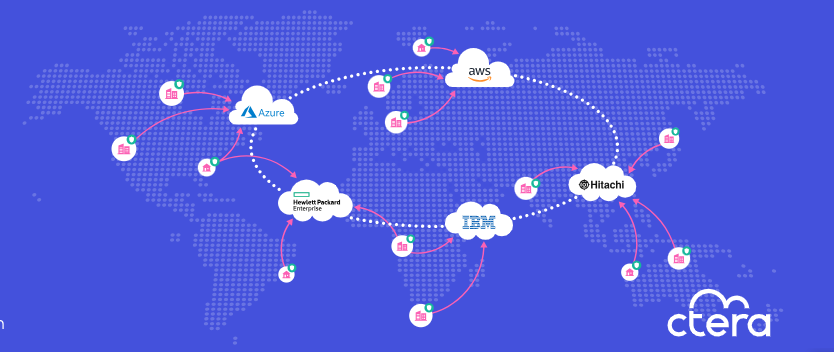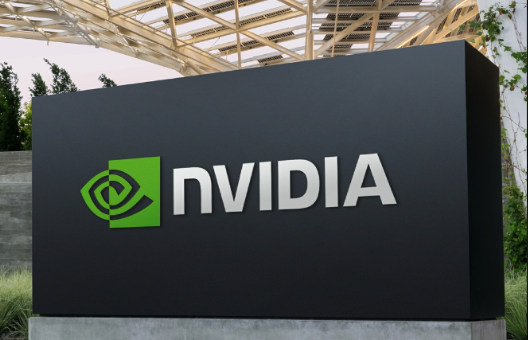File Systems Prep Hybrid Cloud Storage for AI

As artificial intelligence (AI) moves into the enterprise space, attention is focused on the quality and security of data. So it’s no surprise to see a flock of hybrid cloud file storage systems getting industry attention and funding.
Specifically, three companies—CTERA, Nasuni, and Panzura—have each made news lately for organizing and protecting unstructured data across multiple cloud and on-premises systems.
CTERA announced a growth investment of $80 million from PSG Equity on July 17; on July 9, Nasuni revealed a majority equity stake led by Vista Equity Partners that valued the company at $1.2 billion. And on July 18, Panzura acquired data management firm Moonwalk Universal for an undisclosed sum.
Hybrid Cloud File Systems Are NAS Replacements
To review: The niche we’re talking about includes systems that replace traditional network attached storage (NAS) systems from the likes of Dell and NetApp with cloud-native storage of unstructured data. These systems can act as a front end for object storage systems from companies such as AWS (with S3), Cloudian, Hitachi Vantara, HPE, IBM, Microsoft Azure, Oracle, Quantum, and Scality.
Unstructured data, recall, refers to data that’s not in any structured database format, including text files, images, and video clips. According to most estimates, unstructured data accounts for about 80% of corporate data, and much of it is considered important for use in retrieval-augmented generation (RAG) and AI inferencing.
The hybrid cloud file systems create a universal namespace for data in public and private clouds as well as in on-premises storage. They also deliver intelligent edge caching of data, ransomware protection, anomaly detection, and zero-trust access. And hybrid cloud file systems offer significant savings over hardware-based solutions (claims are typically 30% to 50% or more).
The advent of AI in enterprises with hybrid and multicloud estates has drawn attention to these companies thanks to their ability to marshall and protect unstructured data, key to prepping it for AI. The flexibility of access to data is essential here: Formerly, with NAS, data storage was siloed on premises, making it tough to retrieve data easily across multiple clouds.
Three Leading Startups in Hybrid Cloud File Systems
Let’s take a closer look at each of the three companies making news in this space recently.
CTERA. Founded in 2008 by Liran Eshel (now chairman) and Zohar Kaufman (now director of engineering at Cisco), CTERA bills its platform as a distributed file system for hybrid cloud environments. Its recent $80 million funding brings its total raised to about $180 million. The company is headquartered in Israel with a U.S. office and a presence in Europe and Asia. It claims to be cash-flow positive and has a reported 140 employees. Besides PSG, investors include Bessemer, Benchmark, and Red Dot Capital. Customers include The Carlyle Group, McDonalds, Humana, Santander, and the U.S. Veterans Administration.

CTERA hybrid cloud data platform diagram illustrating hybrid cloud compatibility and edge caching common to products in this niche. Source: CTERA
Nasuni. The company was founded in 2009 by Andres Rodriguez (now CTO) and describes itself as offering a global file system that works “much differently” than traditional NAS. By freeing data from NAS siloes while providing analytics, anomaly detection, and ransomware protection, Nasuni claims to make data AI ready. It has 550 employees and operates in the U.S. (with headquarters in Boston) and Europe, with presence in Australia, New Zealand, and Singapore. Besides Vista Equity, investors include TCV and KKR. Nasuni doesn’t reveal its funding but as noted has a valuation of $1.2 billion. Customers include Perkins+Will, Western Digital, GeoVerra, and TBWA.
Panzura. Founded in 2008 by Randy Chou (ex-Aruba, now CEO of Nubeva) and John Taylor (ex-Aruba), Panzura specializes in global file management for hybrid cloud. It is headquartered in Dallas and has about 200 employees. The company claims to have over 40 patents and has raised over $80 million from investors that include Kayne Partners and CIBC Innovation Banking. Customers include Disney, Milwaukee Tool, BBC America, and AmeriHome Mortgage.
Futuriom Take: A handful of companies have spent over 15 years developing secure solutions for managing unstructured data in hybrid cloud environments. These companies are now replacing siloed NAS storage in enterprises looking to harness corporate data in AI applications. Watch this space.















